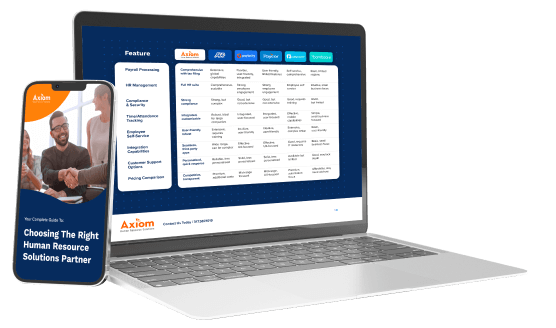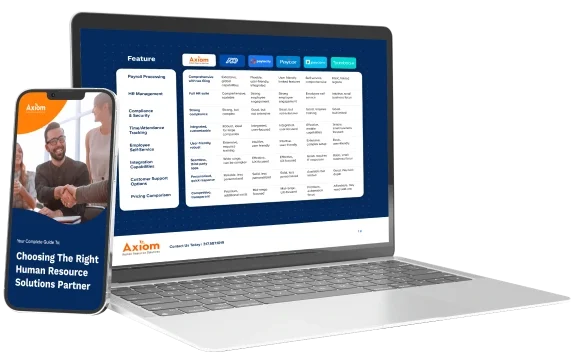
As businesses navigate the complex landscape of labor and employment laws, staying informed about the latest regulatory updates is crucial. Recent developments from the Federal Trade Commission (FTC) and the Department of Labor (DOL) have introduced significant changes, particularly concerning non-compete agreements, overtime regulations, and pregnancy-related workplace protections. This update from Axiom HRS and Bose, McKinney & Evans, LLP provides an overview of these changes and their implications for employers.
1. FTC’s Non-Compete Ban
The FTC’s final rule, issued on April 23, 2024, imposes a broad ban on non-compete agreements. Effective September 4, 2024, the rule prohibits all employment-based non-compete agreements, with exceptions for senior executives. Senior executives are defined as those earning at least $151,164 per year and holding policy-making positions.
Key Points:
- Scope of the Ban: The rule applies to all existing and new non-compete agreements, requiring employers to notify affected employees that these agreements will no longer be enforced.
- Exceptions: Non-compete agreements can still be used in the sale of business contexts and for senior executives.
- Litigation: Multiple legal challenges have been filed against the FTC’s rule, with varying outcomes. Employers should stay updated on these developments as court decisions could impact the rule’s enforcement.
2. Updated Overtime Regulations
The DOL’s new overtime rule, effective July 1, 2024, introduces a tiered increase to the minimum salary threshold for white-collar exempt employees under the Fair Labor Standards Act (FLSA).
Key Points:
- Salary Threshold Increase: The threshold will increase to $844 per week ($43,888 annually) in 2024 and to $1,128 per week ($58,656 annually) in 2025.
- Highly Compensated Employees: The total annual compensation requirement for highly compensated employees will increase to $132,964 in 2024 and $151,164 in 2025.
- Legal Challenges: Similar to the FTC’s non-compete rule, the DOL’s overtime regulation faces legal challenges. Employers should monitor these cases to ensure compliance with current requirements.
3. Pregnancy-Related Workplace Protections
Recent legislative updates, including the Pregnancy Discrimination Act (PDA), the Pregnant Workers Fairness Act (PWFA), and the Providing Urgent Maternal Protections (PUMP) Act, have strengthened protections for pregnant employees.
Pregnancy Discrimination Act (PDA):
- Protections: The PDA prohibits discrimination based on pregnancy, childbirth, or related medical conditions, ensuring that pregnant employees are treated the same as other employees with similar abilities or limitations.
- Reasonable Accommodations: While the PDA does not guarantee accommodations, pregnancy-related conditions that qualify as disabilities under the Americans with Disabilities Act (ADA) may require reasonable accommodations.
Pregnant Workers Fairness Act (PWFA):
- Effective Date: The PWFA, effective June 27, 2023, mandates that employers with 15 or more employees provide reasonable accommodations for pregnancy, childbirth, and related conditions unless it imposes an undue hardship.
- Regulations: The EEOC’s final rule, effective June 18, 2024, outlines specific accommodations and procedures for handling accommodation requests, emphasizing an interactive process between employers and employees.
Providing Urgent Maternal Protections (PUMP) Act:
- Coverage: The PUMP Act extends protections to all employees, requiring employers to provide reasonable break time and a private space (not a bathroom) for expressing breast milk for one year after childbirth.
- Legal Remedies: Employees have the right to bring civil actions against employers who fail to comply with the Act’s requirements.
Practical Steps for Employers
1. Review and Update Policies:
Employers should review and update their employment agreements and policies to ensure compliance with the new FTC and DOL regulations. This includes eliminating non-compete clauses where prohibited and adjusting salary structures to meet new overtime thresholds.
2. Develop Accommodation Procedures:
Establish clear procedures for handling accommodation requests under the PWFA and PUMP Act. This includes training HR personnel on the interactive process and ensuring that appropriate facilities and break times are available for nursing mothers.
3. Monitor Legal Developments:
Stay informed about ongoing litigation related to these regulatory changes. Court decisions may impact the enforcement and interpretation of the FTC and DOL rules, requiring further adjustments to company policies.
4. Communicate with Employees:
Transparent communication with employees is essential. Inform them of policy changes, their rights under the new laws, and the procedures for requesting accommodations or addressing concerns related to these updates.
5. Seek Legal Advice:
Consult with legal experts to navigate these complex regulatory changes and ensure that your company’s policies and practices comply with federal and state laws.
Stay Compliant with Axiom Human Resource Solutions
Employers need diligence and proactive measures when navigating the evolving landscape of labor and employment laws. Axiom HRS takes a comprehensive approach to compliance and HR management. We help you navigate the complexities of labor laws, ensuring that your business is protected from the risk of non-compliance, legal challenges, and potential penalties while you focus on the business operations that keep you profitable.
Contact Axiom HRS today to request a free demo.



